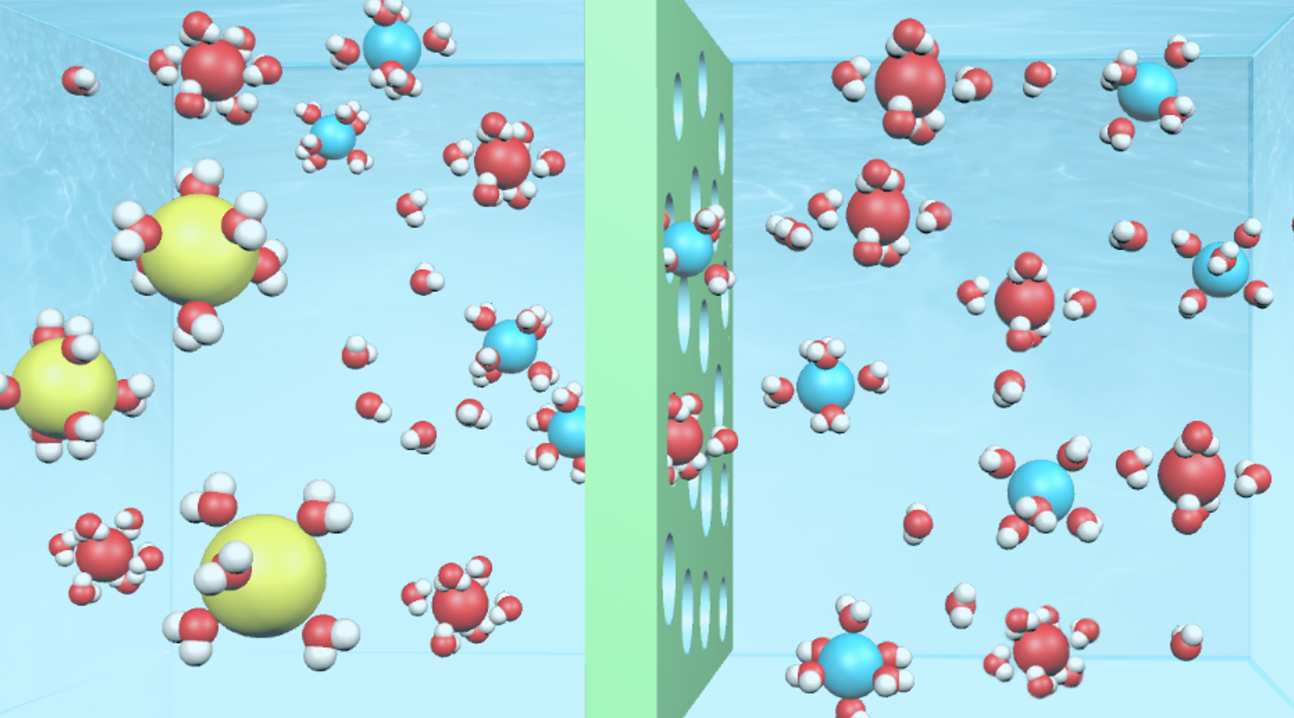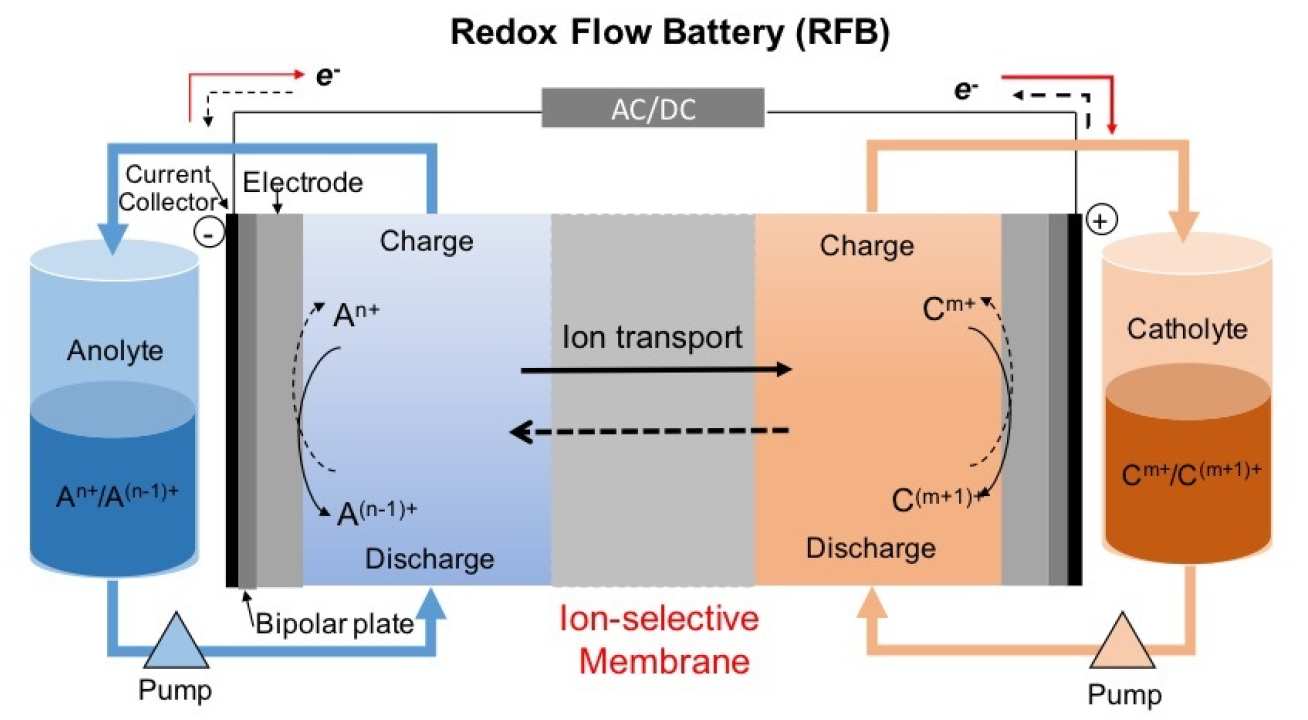In order to meet the challenges of development of energy storage technologies for sustainable energy production (solar and wind, etc), and fast-growing needs of renewable chemical and fuel production from renewable energy, breakthroughs are desired in electrochemical energy converison and storage technologies. To address this big challenge, we design and synthesise next-generation energy materials for electrochemical energy conversion and storage applications.
The focus of our research group is to explore the potential of advanced microporous materials in developing next-generation ion-selective membranes. By utilizing polymers of intrinsic microporosity (PIMs) and metal-organic frameworks (MOFs), our goal is to achieve high ion conductivity and selectivity to improve the performance of rechargeable batteries. In particular, we are investigating the application of these materials in redox flow batteries, which have the potential to be scaled up for large-scale energy storage.

Our research involves the study of microporous polymer membranes with precisely defined molecular-scale porosity and ion-conducting functionality, which play a critical role in enabling rapid and selective ion transport in advanced batteries. Our aim is to gain a deeper understanding of the relationship between the macromolecular structures of these membranes and their ionic conductivity, selectivity, and overall battery performance. Through this work, we aim to develop a cost-effective and scalable flow battery technology for energy storage.
In addition to their potential for energy storage, these membranes hold great promise for other areas of renewable energy development. For example, they could be used to improve the efficiency of hydrogen production through electrolysis, or for the electrochemical conversion of CO2 into chemicals and fuels.
Furthermore, our research on ion-selective membranes has significant potential for environmental applications, such as water purification and resource recovery, making a positive impact on sustainability and circular economy.
Publications:
Anqi Wang, Rui Tan, Dezhi Liu, Jiaxin Lu, Xiaochu Wei, Alberto Alvarez-Fernandez, Chunchun Ye, Charlotte Breakwell, Stefan Guldin, Anthony R. Kucernak, Kim E. Jelfs, Nigel P. Brandon, Neil B. McKeown and Qilei Song*. Ion-selective Microporous Polymer Membranes with Hydrogen-bond and Salt-bridge Networks for Aqueous Organic Redox Flow Batteries. Advanced Materials, 2023, 2210098. Link to full paper: https://doi.org/10.1002/adma.202210098
Chunchun Ye, Anqi Wang, Charlotte Breakwell, Rui Tan, C. Grazia Bezzu, Elwin Hunter-Sellars, Daryl R. Williams, Nigel P. Brandon, Peter A. A. Klusener, Anthony R. Kucernak, Kim E. Jelfs, Neil B. McKeown* & Qilei Song*. Development of efficient aqueous organic redox flow batteries using ion-sieving sulfonated polymer membranes. Nature Communications, 13, Article number: 3184 (2022).
C. Ye, R. Tan, A. Wang, J. Chen, B. Comesaña Gándara, C. Breakwell, A. Alvarez-Fernandez, Z. Fan, J. Weng, C. G. Bezzu, S. Guldin, N. P. Brandon, A. R. Kucernak, K. E. Jelfs, N. B. McKeown*, Q. Song*, Long-Life Aqueous Organic Redox Flow Batteries Enabled by Amidoxime-Functionalized Ion-Selective Polymer Membranes. Angew. Chem. Int. Ed. 2022, 61, e202207580; Angew. Chem. 2022, 134, e202207580.
Rui Tan+, Anqi Wang+, Richard Malpass-Evans, Rhodri Williams, Evan Wenbo Zhao, Tao Liu, Chunchun Ye, Xiaoqun Zhou, Barbara Primera Darwich, Zhiyu Fan, Lukas Turcani, Edward Jackson, Linjiang Chen, Samantha Y. Chong, Tao Li, Kim E. Jelfs, Andrew I. Cooper, Nigel P. Brandon, Clare P. Grey, Neil B. McKeown*, and Qilei Song*. Hydrophilic microporous membranes for selective ion separation and flow-battery energy storage. Nature Materials, 19, 195–202(2020). doi:10.1038/s41563-019-0536-8. (+contributed equally).
